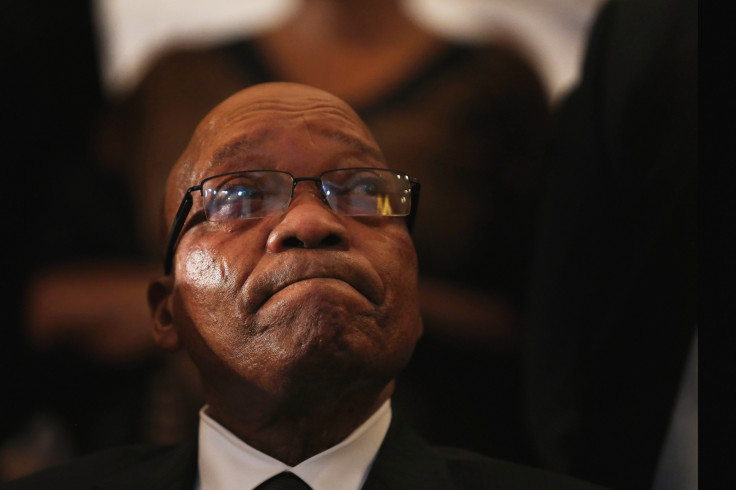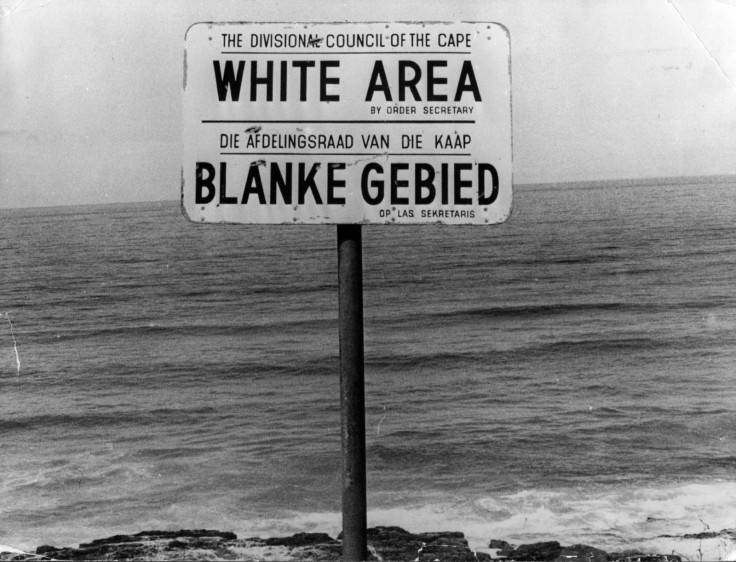Simon Heffer: How long will South Africa survive? With Jacob Zuma at the helm, probably not long
Had I been writing this column 30 years or so ago, it would have regularly dealt with a part of the world that so far I have not yet had cause to touch upon: South Africa. Those were the days of the anti-apartheid struggle, where the world spoke as one in urging the release of Nelson Mandela and ending the racialist policies of the Afrikaaner-dominated South African government.
There were few more iniquitous regimes in the supposedly civilised world, and a nation that reserved park benches for white people and refused to let anyone of non-white descent play for their cricket team – or even, as in the outrageous case of Basil d'Oliveira, against it – deserved the opprobrium the world heaped upon it.

What has happened since 1994, when majority rule first came to the Cape, has however, been tiresomely predictable. The white rulers had done little or nothing to prepare the black majority to govern a country that had a sophisticated infrastructure of Western-style institutions such as a rule of law, parliament and government departments.
Worse, it had done nothing to school them in the ways of business, something of huge importance in a nation of fabulous mineral wealth, notably its diamonds and gold.
Mandela, whose martyrdom was excessive, was treated like a saint during his lifetime, which was hardly helpful. The international worship he occasioned, while not unjustified, also got in the way of his country preparing itself to prosper in the modern world, and not to go the same way as so much of post-imperial Africa, to burn itself out with inter-communal strife and to come up with a one-party state whose rule was most marked by allegations of corruption.
Mandela's successor, Thabo Mbeki, was not worth the smallest fraction of him in moral terms. His successor, Jacob Zuma, is worth even less. The mismanagement of South Africa's economy has left its currency hopelessly devalued. Policies aimed at giving black people a proper stake in their country have veered towards expropriation and have caused capital flight. No one in their right mind would now invest in a country where firms have no right, effectively, to manage their own businesses, and where profitability is driven down by over-regulation and interventionism.
ANC to blame for wasted opportunity
All this is the fault of the ruling African National Congress (ANC), which appears to have used the magnificent opportunity furnished by the end of racist white rule to implement what seems to many people inside and outside South Africa as a racist black one, and one that favours only a small clique of black people at that.
The moral inheritance left by the white rulers was appalling; the economic one was not. And it should have provided the basis, had it been administered properly, to see that the next generation of African children was better educated, better fed, better trained and better prepared to take responsibility for themselves and to run the most successful country in sub-Saharan Africa. That this has been squandered in the past 20 years is an outrage to a people that had already suffered enough.
These thoughts are prompted by a new book written by RW Johnson, a Durban-born academic who joined the ANC as a young man before leaving for a long academic career at Oxford. Johnson returned to South Africa and now acts as one of the greatest scourges of an allegedly corrupt, depraved ANC.
His book, How Long Will South Africa Survive?, excoriates the present leadership and takes a dismal view of the country's prospects. What is perhaps insufficiently appreciated, though, is the easy ride that Western politicians and intellectuals have given the ANC since it took power two decades ago, and just how little has been done to make Jacob Zuma and his cronies realise how monstrously they have allegedly behaved.

There is an opposition of sorts in South Africa but the system and controls on expression make it almost impossible to succeed. The nature of all corrupt regimes is that they do everything possible to ensure their own survival, usually by making it financially impossible for vested interests to support any other form of government. Zuma's appears to be no different.
But it remains also greatly the responsibility of the international community that it has effectively turned a blind eye to South Africa's needless suffering. But then what else could it do?
Those who, quite rightly, fought the apartheid system were quite open about their happiness to see the ANC, with all the shortcomings brought by an addiction to revolutionary politics, take control of the country. One form of monstrous government has therefore been replaced by another, as Johnson makes clear in his book. Yet because it was complicit in the endorsement of the ANC, the international left dare not criticise the monster it helped create.
How long will South Africa survive? Zuma will presumably continue until he has bled the country dry. The international community could use a form of sanctions to try to secure structural reforms and the creation of viable institutions – Johnson's view is that the rule of law has had it as things stand – but otherwise there is no incentive for change.
The West detached itself from South Africa – a country of huge significance – when Mandela took control and subsequently turned a blind eye to all that happened. Yet precisely because of the ruthless way in which the whites had excluded the blacks from power, the blacks were untrained in how to exercise it. If the West thinks it is too late to reverse that situation, and if it is prepared to continue to pretend that Zuma is a responsible and positive force, then perhaps South Africa really is finished.
Dr Simon Heffer is a British commentator and author who has written columns for The Daily Mail, The Daily Telegraph, The Spectator and The New Statesman. He is the biographer of Enoch Powell, Thomas Carlyle and Ralph Vaughan Williams and recently published High Minds: The Victorians And The Birth Of Modern Britain.
© Copyright IBTimes 2024. All rights reserved.






